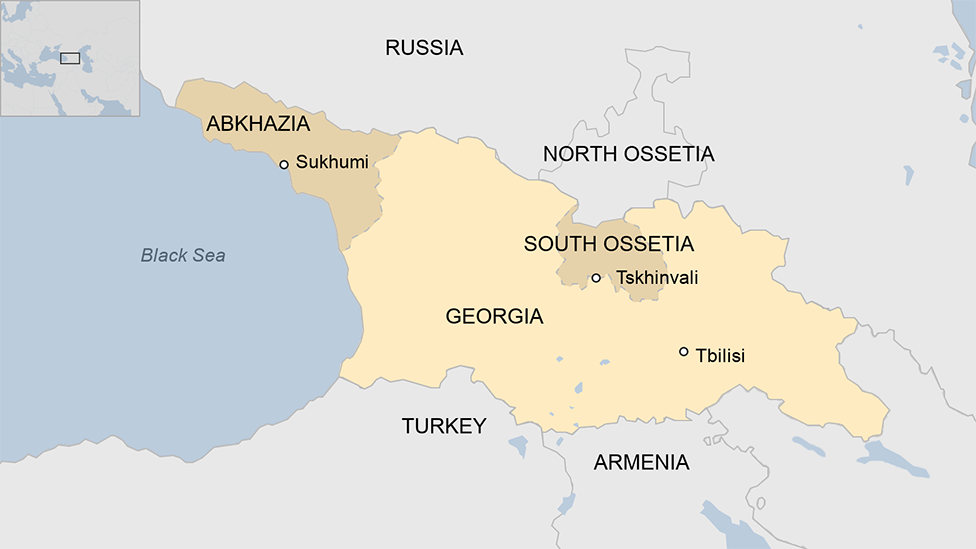Georgia Abkhazia: Leader 'flees' protesters in Sukhumi
- Published
Protester: "We... will lead Alexander Ankvab, no longer the president, out of here"
The president of the breakaway Georgian region of Abkhazia is said to have fled the capital Sukhumi after opposition protesters seized his office.
Alexander Ankvab reportedly retreated to his home town Gudauta, 40km (25 miles) away, when talks with the opposition broke down.
Many people in the Russian-backed region are unhappy with the ailing economy and lack of reforms.
But Abkhazian nationalist feeling is also fuelling the unrest.
The protesters are led by Raul Khadzhimba, a former prime minister and vice-president of Abkhazia, who was defeated by Mr Ankvab in elections in August 2011.
The Black Sea coastal region is recognised as a state only by Russia and a few other countries. It broke away from Georgia after a civil war more than 20 years ago and declared formal independence in 2008. Since then, it has relied militarily and financially on Russia.
Russia is reportedly sending two senior officials, presidential aide Vladislav Surkov and deputy security council secretary Rashid Nurgaliyev, to Sukhumi in response to the crisis.
Opinion among the opposition is said to be divided between those who want Abkhazia to rely less on Russia and those who instead want it to become part of Russia.
Nationalist feeling
Mr Ankvab accused the opposition of attempting a coup on Tuesday and said the security forces remained "loyal to the state" and were "taking measures to stabilise the situation".
Raul Khadzhimba defended the protests, saying: "Over all the years of his rule the president did not allow anybody in his circle to do their work.
"He took upon himself everybody's responsibilities on their behalf, whether he should or should not have been doing this. That led to our country in fact becoming an authoritarian regime.
In a statement, the Russian foreign ministry said: "The Russian side is following events closely and with concern... and considers it important that socio-political processes develop exclusively along legal lines."
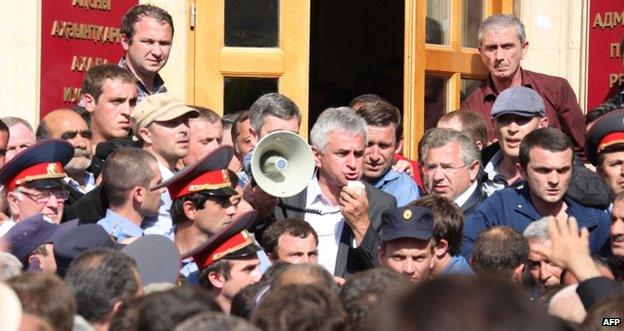
Raul Khadzhimba addressed protesters in front of the presidential office in Sukhumi on Tuesday
- Published28 May 2014
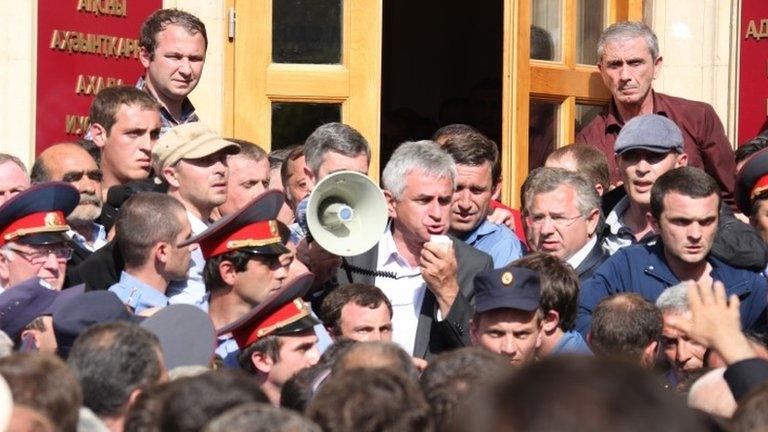
- Published4 February 2014
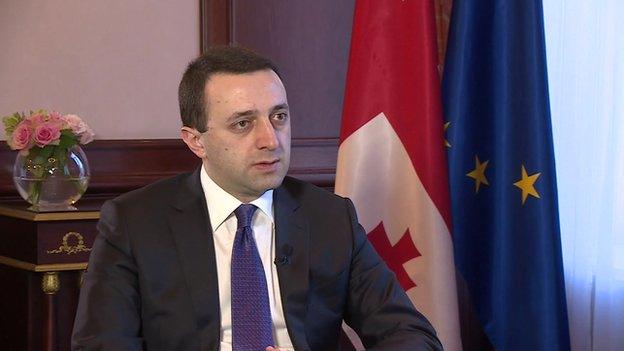
- Published25 June 2013
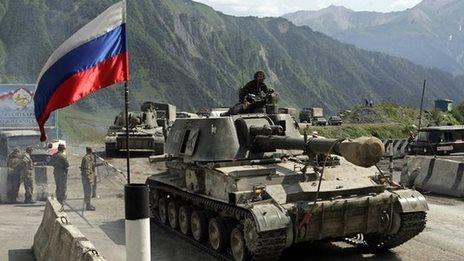
- Published19 November 2024
